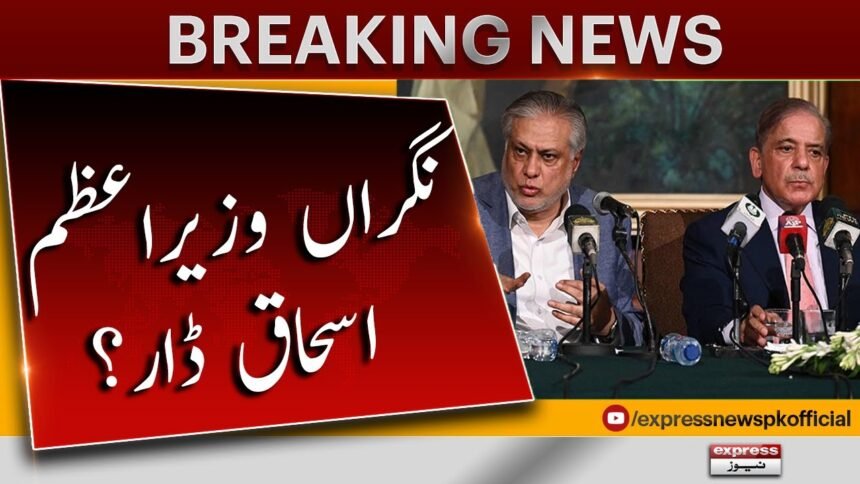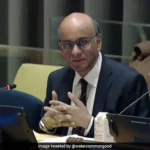In a recent interview with a private television channel, Pakistan’s Finance Minister Ishaq Dar has dismissed reports suggesting that he is the front runner for the post of caretaker prime minister. The 73-year-old leader stated that talks about his potential candidacy are “premature” and that formal consultations on the matter have not yet commenced. Instead, he emphasized that the decision on the appointment lies with the ruling alliance Pakistan Democratic Movement (PDM).
The mainstream media in Pakistan had previously reported that the ruling Pakistan Muslim League-Nawaz (PML-N) party was considering proposing Ishaq Dar’s name as the caretaker prime minister for the cash-strapped country. This proposal was expected to come into play once the term of the current National Assembly expired next month.
As the news about the possibility of Ishaq Dar’s nomination spread, many speculated on the implications of such a move. Being a seasoned politician and having previously served as the Finance Minister of Pakistan, Dar’s potential appointment would carry significant weight. However, he has downplayed the speculations, reiterating that the PDM holds the authority to make the final decision.
The role of the caretaker prime minister in Pakistan is critical, especially during the transition period between one elected government’s term and the formation of the next one. The caretaker government’s primary responsibility is to ensure a smooth electoral process, providing a level playing field for all political parties contesting the elections.
Ishaq Dar’s name has been frequently associated with economic matters in Pakistan. During his tenure as the Finance Minister, he played a prominent role in shaping the country’s economic policies. However, it is essential to note that Dar has also faced legal challenges in the past. In 2017, he was indicted by an accountability court in Pakistan on corruption charges related to his assets’ declaration.
The political landscape in Pakistan has been undergoing significant changes, with various parties vying for power and influence. The PDM, an alliance of opposition parties, has been actively challenging the ruling government. Their decision on the caretaker prime minister will undoubtedly be subject to careful consideration, as it can impact the upcoming elections and the nation’s political trajectory.
It is not uncommon for the appointment of a caretaker prime minister to become a subject of debate and negotiations among political factions. The primary aim is to choose a neutral and competent leader who can ensure fair elections and maintain stability during the transitional period. The role demands a firm commitment to upholding democratic principles and serving the best interests of the nation.
As of now, Ishaq Dar has distanced himself from the discussions surrounding his potential candidacy, asserting that any talks on the matter are premature. The PDM’s decision-making process will likely involve internal consultations and negotiations among its member parties. Until then, speculation about the caretaker prime minister’s appointment will continue to generate interest and debate in the Pakistani political sphere.
Ishaq Dar, Pakistan’s Finance Minister, has denied being the front runner for the post of caretaker prime minister, calling the talks premature. He emphasized that the decision rests with the ruling alliance PDM. The mainstream media had previously reported the possibility of his nomination by the PML-N party. As the nation awaits the end of the current National Assembly’s term next month, the appointment of a caretaker prime minister remains a crucial topic of discussion and negotiation in Pakistan’s political arena.




